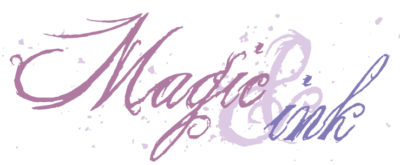
If I could make one rule for writers universally true, it would be this: join a critique group.
Now, that might seem like a self-defeating recommendation for me to make, when I’m over here trying to sell you editing services. Why would I suggest that potential clients seek out an alternative source for critique on their manuscripts — one that doesn’t cost anything?
I assure you, I’m not trying to run myself out of business.
Critique groups have much to offer writers beyond direct feedback on their manuscripts. And the truth is, the feedback you do get in a group is probably not going to be all that useful to you. While you may be lucky enough to have one or two writers in your group who are capable critiquers, the piecemeal nature of the operation — a few pages reviewed here and there over the course of many months — is going to work against you. Nobody can keep a whole novel in their head under those circumstances. Nobody is going to be able to give you holistic feedback. Which is not to say you won’t get good advice… but it’s only going to be partial advice.
So, no, I’m not suggesting that you join a critique group because they’re going to help you fix your story.
You should join a critique group because you will learn how to fix your story yourself.
How Critiquing Helps You Develop Good Writer Instincts
“You have to read to be a writer.” That’s pretty universal advice that I’m not going to dispute, buti it’s most often interpreted to mean, “You should read good writers.” By reading the best, you’re giving yourself a good example to aim for.
But while it’s easy to appreciate well-written stories, it’s harder to understand why it all works. You can study the rules, sure. There are countless books and magazines and websites where you can learn techniques for writing, everything from “don’t use adverbs” to the intricacies of crafting story beats. So much good advice out there.
But nothing will hone your gut-level instincts of story crafting so much as having to dissect someone else’s less-than-exemplary pages and then verbalize how they might be able to improve them.
It’s that verbalization that’s the key element. If you’re a writer, and you’ve been studying the craft, you probably have a pretty good idea of what makes a good story, even if it’s just a gut level instinct about whether it’s good or not.
But when you have to stop and constructively explain exactly why something is good or not, then you’re going to elevate that gut instinct to a true mastery of craft. Being able to tell another writer that the pacing is off, or the sentence structure is awkward, or that the characters are underdeveloped — when you can identify what the actual problems are and not just that they made you bored or confused — then you are going to internalize all those lessons from books and magazines and blogs and be able to apply them more effectively to your own work. It’s a version of that old teacher’s secret: the best way to learn something is to have them explain it to someone else.
Being part of a critique group, online or in person, can be a huge time commitment, but there is no better learning experience for a developing writer. Approach the work of other writers analytically (without being judgmental) and you will unearth a wealth of knowledge and experience that you can bring to your own writing.
Plus, you will gain the benefit ofinteracting with other writers. Writing can be a lonely journey. It helps a few to find companions along the way.

Stace. I have been a member of critique groups since 1978. You hit this on the head. You are forced to get better by analyzing other works that have flaws. And there is nothing so helpful as reading your work aloud. Thanks for putting this out there. Jim Kingston